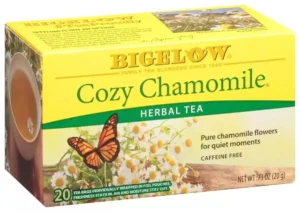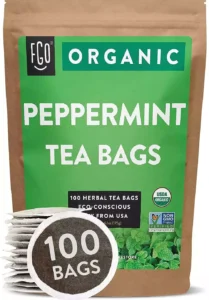Sore throat and cough are two common symptoms of many respiratory illnesses, including colds, the flu, and bronchitis. They can also be caused by allergies, dry air, and other factors. There are a number of things you can do to relieve the symptoms of a sore throat and cough, including drinking plenty of fluids, gargling with salt water, sucking on lozenges or hard candy, and using a humidifier. If your symptoms are severe or do not improve after a few days, you should see a doctor.

Define Sore Throat and Cough
A sore throat is a painful, scratchy, or irritated feeling in the throat. It is one of the most common medical complaints, affecting people of all ages. A cough is a reflex that helps to clear mucus and other irritants from the airways. It is also a common symptom of many respiratory illnesses, such as colds, the flu, and bronchitis.
A sore throat and cough can occur together or separately. When they occur together, they are often caused by a viral infection, such as a cold or the flu. However, they can also be caused by other factors, such as bacterial infections, allergies, and dry air.
Sore throat
A sore throat can be caused by a number of things, including:
- Viral infections: Colds and the flu are the most common causes of sore throats.
- Bacterial infections: Strep throat is a bacterial infection that can cause a severe sore throat.
- Allergies: Allergies to pollen, dust mites, or mold can cause a sore throat, especially in the spring and fall.
- Dry air: Dry air can irritate the throat and cause a sore throat.
- Gastroesophageal reflux disease (GERD): GERD is a condition in which stomach acid backs up into the throat. This can irritate the throat and cause a sore throat.
Cough
A cough can be caused by a number of things, including:
- Viral infections: Colds and the flu are the most common causes of coughs.
- Bacterial infections: Pneumonia and bronchitis are bacterial infections that can cause a cough.
- Allergies: Allergic rhinitis (hay fever) and asthma can cause a cough.
- Postnasal drip: Postnasal drip is a condition in which mucus drips from the back of the nose into the throat. This can irritate the throat and cause a cough.
- Smoking: Smoking can irritate the airways and cause a cough.
- Asthma: Asthma is a chronic condition that causes inflammation and narrowing of the airways. This can lead to a cough, especially during exercise or when exposed to allergens.
- Chronic obstructive pulmonary disease (COPD): COPD is a chronic lung disease that causes airflow obstruction. This can lead to a cough, especially in the morning and at night.
Symptoms
The symptoms of a sore throat and cough can vary depending on the underlying cause. However, some common symptoms include:
- Pain or scratchiness in the throat
- Difficulty swallowing
- Hoarse voice
- Cough
- Runny or stuffy nose
- Sneezing
- Fever
- Headache
- Muscle aches
Treatment
The treatment for a sore throat and cough depends on the underlying cause. If the sore throat and cough are caused by a viral infection, there is no specific treatment. Most viral infections will clear up on their own within a week or two. However, there are a number of things that can be done to relieve the symptoms of a sore throat and cough, such as:
- Drinking plenty of fluids to stay hydrated
- Gargling with salt water
- Sucking on lozenges or hard candy
- Using a humidifier
- Taking over-the-counter pain relievers, such as ibuprofen (Advil, Motrin) or acetaminophen (Tylenol)
If the sore throat and cough are caused by a bacterial infection, your doctor may prescribe antibiotics.
If you have a sore throat and cough that is severe or does not improve after a few days, you should see a doctor.
Prevention
There are a number of things that can be done to help prevent a sore throat and cough, including:
- Washing your hands frequently
- Avoiding close contact with people who are sick
- Getting vaccinated against the flu
- Quitting smoking
- Avoiding exposure to allergens
- Keeping your home humidified
If you have a sore throat and cough, it is important to stay home from work or school to avoid spreading the infection to others. You should also get plenty of rest and drink plenty of fluids.
Sore Throat and Cough Medicine
There are a number of over-the-counter (OTC) medicines that can help to relieve the symptoms of a sore throat and cough. Some of the most common include:
Pain relievers:
- Pain relievers such as ibuprofen (Advil, Motrin) and acetaminophen (Tylenol) can help to reduce the pain and inflammation associated with a sore throat.
Cough suppressants:
- Cough suppressants such as dextromethorphan (Robitussin DM) and guaifenesin (Mucinex) can help to reduce coughing by suppressing the cough reflex.
Expectorants:
- Expectorants such as guaifenesin (Mucinex) can help to thin mucus and make it easier to cough up.
It is important to note that these medicines can have side effects, so it is important to read and follow the label carefully. You should also talk to your doctor before taking any OTC medicines, especially if you have any underlying health conditions or are taking any other medications.
If your symptoms are severe or do not improve after a few days, see a doctor. Your doctor may prescribe antibiotics if your sore throat is caused by a bacterial infection.
Sore Throat and Cough Medicine for Adults
There are a number of over-the-counter (OTC) and prescription medicines that can help to relieve the symptoms of a sore throat and cough in adults.
Over-the-counter medicines
Pain relievers:
- Pain relievers such as ibuprofen (Advil, Motrin) and acetaminophen (Tylenol) can help to reduce the pain and inflammation associated with a sore throat.
Cough suppressants:
- Cough suppressants such as dextromethorphan (Robitussin DM) and guaifenesin (Mucinex) can help to reduce coughing by suppressing the cough reflex.
Expectorants:
- Expectorants such as guaifenesin (Mucinex) can help to thin mucus and make it easier to cough up.
Prescription medicines
Antibiotics:
- Antibiotics are only necessary if your sore throat is caused by a bacterial infection. Your doctor will be able to determine if you need antibiotics by examining your throat and taking a throat culture.
Corticosteroids:
- Corticosteroids such as prednisone can be used to reduce inflammation in the throat. They are typically reserved for severe cases of sore throat that do not respond to other treatments.
It is important to note that all medicines can have side effects, so it is important to read and follow the label carefully. You should also talk to your doctor before taking any OTC or prescription medicines, especially if you have any underlying health conditions or are taking any other medications.
Natural Remedies for Sore Throat and Cough
Here are some natural remedies for sore throat and cough:
Drink plenty of fluids:
- Staying hydrated helps to thin mucus and make it easier to cough up. Water, juice, and clear broth are all good choices.
Gargling with salt water:
- Salt water helps to reduce inflammation and kill bacteria in the throat. To make a salt water gargle, dissolve 1/2 teaspoon of salt in 8 ounces of warm water. Gargle for 30 seconds, several times a day.
Suck on lozenges or hard candy:
- Lozenges and hard candy can help to soothe a sore throat and keep the throat moist.
Use a humidifier:
- A humidifier can help to add moisture to the air, which can soothe a sore throat and relieve congestion.
Get plenty of rest:
- Resting helps the body to heal and fight off infection.
In addition to the above remedies, there are a number of other natural remedies that may help to relieve the symptoms of a sore throat and cough. These include:
Honey:
- Honey has antibacterial and antiviral properties, and it can also help to soothe a sore throat. To use honey for a sore throat, mix a spoonful of honey with warm water or tea and drink it slowly.
Ginger:
- Ginger has anti-inflammatory and antiviral properties. It can also help to soothe a sore throat and reduce coughing. To use ginger for a sore throat, grate a piece of fresh ginger and add it to hot water or tea. You can also suck on ginger candy.
Chamomile:
- Chamomile is a calming herb that can help to relieve throat pain and inflammation. To use chamomile for a sore throat, steep a chamomile tea bag or 1-2 teaspoons of dried chamomile flowers in hot water for 5-10 minutes. You can drink the tea or gargle with it.
Peppermint:
- Peppermint has a cooling effect that can help to soothe a sore throat and relieve congestion. To use peppermint for a sore throat, steep a peppermint tea bag or 1-2 teaspoons of dried peppermint leaves in hot water for 5-10 minutes. You can drink the tea or gargle with it.
If your symptoms are severe or do not improve after a few days, you should see a doctor.
Foods to Avoid with Sore Throat and Cough
There are a number of foods and drinks that you should avoid if you have a sore throat and cough. These foods and drinks can irritate your throat and make your symptoms worse.
Foods to avoid:
Citrus fruits and juices:
- Citrus fruits and juices, such as oranges, lemons, and grapefruits, are acidic and can irritate a sore throat.
Spicy foods:
- Spicy foods can also irritate a sore throat.
Hard foods:
- Hard foods, such as crackers, nuts, and pretzels, can be difficult to swallow and can scratch the back of your throat.
Dry foods:
- Dry foods, such as cereal and toast, can absorb moisture from your throat and make it feel dry and sore.
Dairy products:
- Dairy products, such as milk, cheese, and yogurt, can thicken mucus and make it more difficult to cough up.
Drinks to avoid:
Caffeine:
- Caffeine can be dehydrating and can make a sore throat worse.
Alcohol:
- Alcohol can also be dehydrating and can irritate a sore throat.
Carbonated drinks:
- Carbonated drinks can cause gas and bloating, which can make a sore throat feel worse.
Sugary drinks:
- Sugary drinks can coat the throat and make it feel sticky and uncomfortable.
Instead of the foods and drinks listed above, you should focus on eating and drinking things that are soothing and easy to swallow. Some good options include:
Soup:
- Soup is a good source of fluids and nutrients, and it can also help to soothe a sore throat.
Yogurt:
- Yogurt is a good source of protein and calcium, and it is also easy to swallow.
Applesauce:
- Applesauce is a soft, sweet food that is easy to swallow. It is also a good source of vitamin C, which can help to boost your immune system.
Ice cream:
- Ice cream can help to cool and soothe a sore throat.
Honey:
- Honey has antibacterial and antiviral properties, and it can also help to soothe a sore throat.
If you have a sore throat and cough, it is important to stay hydrated. You should drink plenty of water, juice, and other fluids. You may also want to try sucking on lozenges or hard candy to keep your throat moist.
If your symptoms are severe or do not improve after a few days, you should see a doctor.
What Tea is Good for Sore Throat and Cough
There are a number of teas that can be beneficial for a sore throat and cough. Some of the most popular include:
Ginger tea:

- Ginger has anti-inflammatory and antiviral properties, which can help to soothe a sore throat and reduce coughing. To make ginger tea, simply steep a few slices of fresh ginger in hot water for 5-10 minutes.
Chamomile tea:

- Chamomile is a calming herb that can help to relieve throat pain and inflammation. To make chamomile tea, steep a chamomile tea bag or 1-2 teaspoons of dried chamomile flowers in hot water for 5-10 minutes.
Peppermint tea:

- Peppermint has a cooling effect that can help to soothe a sore throat and relieve congestion. To make peppermint tea, steep a peppermint tea bag or 1-2 teaspoons of dried peppermint leaves in hot water for 5-10 minutes.
Honey tea:

- Honey is a natural sweetener that has antibacterial and antiviral properties. It can also help to coat and soothe a sore throat. To make honey tea, add a spoonful of honey to a cup of hot tea.
Echinacea tea:

- Echinacea is an herb that is often used to boost the immune system and fight off infection. It may also help to reduce the duration of a cold. To make echinacea tea, steep a teabag or 1-2 teaspoons of dried echinacea flowers in hot water for 5-10 minutes.
It is important to note that herbal teas are not a substitute for medical care. If you have a severe sore throat or cough, or if your symptoms do not improve after a few days, you should see a doctor.
Best Alcoholic Drink for Sore Throat and Cough
There is no alcoholic drink that is good for a sore throat and cough. In fact, alcohol can actually worsen these symptoms. Alcohol can irritate the lining of the throat and make a sore throat worse. It can also dry out the throat, which can lead to coughing. Additionally, alcohol can dehydrate the body, which can make it more difficult for the body to fight off infection.
If you have a sore throat and cough, it is best to avoid alcohol and other irritants, such as caffeine and smoke. Instead, drink plenty of fluids, such as water, juice, and tea. You may also want to try sucking on lozenges or hard candy to soothe your throat.
If your symptoms are severe or do not improve after a few days, see a doctor.
Conclusion
A sore throat and cough are two common symptoms of many respiratory illnesses, including colds, the flu, and bronchitis. They can also be caused by allergies, dry air, and other factors. Most sore throats and coughs will clear up on their own within a week or two. However, there are a number of things you can do to relieve the symptoms, such as drinking plenty of fluids, gargling with salt water, sucking on lozenges or hard candy, and using a humidifier. If your symptoms are severe or do not improve after a few days, you should see a doctor.
Here are some additional tips for preventing and treating a sore throat and cough:
- Get vaccinated against the flu and other respiratory illnesses.
- Wash your hands frequently with soap and water.
- Avoid close contact with people who are sick.
- Avoid smoking and secondhand smoke.
- Keep your home and workplace clean and dust-free.
- Use a humidifier to add moisture to the air, especially in the winter.
- Drink plenty of fluids, especially water and clear broths.
- Gargle with salt water several times a day.
- Suck on lozenges or hard candy to soothe your throat.
- Use a humidifier or take a hot shower to help loosen mucus and make it easier to cough up.
Get plenty of rest.
If your sore throat and cough are severe or do not improve after a few days, see a doctor. You may need antibiotics if you have a bacterial infection.
FAQs
Q. What is a sore throat?
A. A sore throat is a painful, scratchy, or irritated feeling in the throat. It is one of the most common medical complaints, affecting people of all ages.
Q. What is a cough?
A. A cough is a reflex that helps to clear mucus and other irritants from the airways. It is also a common symptom of many respiratory illnesses, such as colds, the flu, and bronchitis.
Q. What causes a sore throat and cough?
A. A sore throat and cough can be caused by a number of things, including:
- Viral infections: Colds and the flu are the most common causes of sore throats and coughs.
- Bacterial infections: Strep throat is a bacterial infection that can cause a severe sore throat and cough.
- Allergies: Allergies to pollen, dust mites, or mold can cause a sore throat and cough, especially in the spring and fall.
- Dry air: Dry air can irritate the throat and cause a sore throat and cough.
- Gastroesophageal reflux disease (GERD): GERD is a condition in which stomach acid backs up into the throat. This can irritate the throat and cause a sore throat and cough.
Q. What are the symptoms of a sore throat and cough?
A. The symptoms of a sore throat and cough can vary depending on the underlying cause. However, some common symptoms include:
- Pain or scratchiness in the throat
- Difficulty swallowing
- Hoarse voice
- Cough
- Runny or stuffy nose
- Sneezing
- Fever
- Headache
- Muscle aches
Q. How do I treat a sore throat and cough?
A. The treatment for a sore throat and cough depends on the underlying cause. If the sore throat and cough are caused by a viral infection, there is no specific treatment. Most viral infections will clear up on their own within a week or two. However, there are a number of things that can be done to relieve the symptoms of a sore throat and cough, such as:
- Drinking plenty of fluids to stay hydrated
- Gargling with salt water
- Sucking on lozenges or hard candy
- Using a humidifier
- Taking over-the-counter pain relievers, such as ibuprofen (Advil, Motrin) or acetaminophen (Tylenol)
If the sore throat and cough are caused by a bacterial infection, your doctor may prescribe antibiotics.
Q. How can I prevent a sore throat and cough?
A. There are a number of things that can be done to help prevent a sore throat and cough, including:
- Washing your hands frequently
- Avoiding close contact with people who are sick
- Getting vaccinated against the flu
- Quitting smoking
- Avoiding exposure to allergens
- Keeping your home humidified
If you have a sore throat and cough, it is important to stay home from work or school to avoid spreading the infection to others. You should also get plenty of rest and drink plenty of fluids.
Q. When should I see a doctor for a sore throat and cough?
A. You should see a doctor for a sore throat and cough if:
- Your symptoms are severe
- Your symptoms do not improve after a few days
- You have a fever of 101 degrees Fahrenheit or higher
- You have difficulty breathing
- You have chest pain
- You are coughing up green or yellow mucus
- You have a sore throat that is so severe that you cannot swallow fluids
Q. What are some natural remedies for a sore throat and cough?
A. Some natural remedies for a sore throat and cough include:
- Drinking plenty of fluids, such as water, juice, and clear broth
- Gargling with salt water
- Sucking on lozenges or hard candy
- Using a humidifier
- Getting plenty of rest
- Honey
- Ginger
- Chamomile
- Peppermint
Q. What are some foods and drinks to avoid with a sore throat and cough?
A. Some foods and drinks to avoid with a sore throat and cough include:
- Citrus fruits and juices
- Spicy foods
- Hard foods
- Dry foods
- Dairy products
- Caffeine
- Alcohol
- Carbonated drinks
- Sugary drinks
Q. What are some tips for relieving the symptoms of a sore throat and cough at night?
A. Some tips for relieving the symptoms of a sore throat and cough at night include:
- Elevating your head with pillows when you sleep
- Using a humidifier in your bedroom
- Taking a hot shower or bath before bed
- Drinking a warm cup of tea or soup before bed
- Sucking on a lozenge or hard candy before bed
You may also like to Know:
I have been surfing on-line more than 3 hours these days, but I never found any interesting article like
yours. It is beautiful worth sufficient for me.
In my view, if all website owners and bloggers made excellent content
material as you probably did, the internet will be a lot more helpful than ever before.
Thanks for your motivations
Thanks for sharing. I read many of your blog posts, cool, your blog is very good.
Your point of view caught my eye and was very interesting. Thanks. I have a question for you.